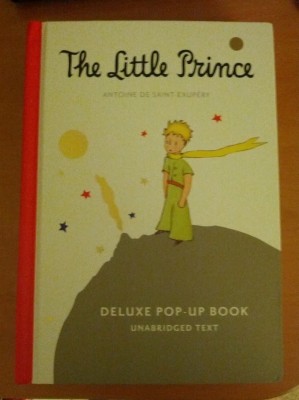I remember having lunch with Jeff Bezos back when I was a senior in high school. This was just a couple of years after he won the Time Person of the Year award, so no big deal. I remember that trip because it was kind of awesome (the rather self-aggrandizing Academy of Achievement Summit, although they did get quite a collection of notable people there). This event was also where I shook hands with George Lucas; it was also about a year after Episode 1 came out, so screw that guy. Unfortunately, after the dot-com bust, money went dry and I think nowadays only Rhodes scholars are invited to that event. Kids: there are some perks for getting straight As and acing the SATs.
This post is not about name dropping; in fact, I pretty much despise the cult of celebrity that our modern culture fosters. But I do think there are some useful lessons that can be learned from famous people, and this is hopefully one of them.
In this lunch with Mr. Bezos, he talked about the early days of amazon.com (the world’s largest rainforest website), and how it grew to become the behemoth that it was. Which, incidentally, is tiny compared to what it is now, a decade later. Anyway, what I remember most from that lunch was that he said, in response to someone’s (my?) question, yes, it does take a certain amount of luck for a startup to get off the ground because there are a lot of risks involved in starting a company. But after the initial phase of success, a company thrives precisely because (and only if) it can systematically eliminate risks. So after the first set of risks pay off, you use the windfall from those returns to get rid of any current and potentially future risks.
This seemed quite profound back in high school. Despite the fact that I have zero desire to do a startup, I think it still is a lesson that I keep to heart.
There are a lot of risks we face in life. The vagaries of life are such that there a zillion things that can go wrong in any day. In the course of our everyday habits, it’s sometimes easy to forget how fragile we are. Egoism makes us believe that we are immune to the tragedies that befall others.
My mom, who was basically the architect of my life and my education up through high school, also chose what I view as a very conservative and low-risk, moderate-reward path for my sister and me. I think both of us have strayed somewhat from the path (neither of us became doctors), but in essence we still abide to this conservatism with regard to our lives. Right now, I’m not sure if this is a desirable outcome. Although I do have her to thank for talking me off the cliff of becoming a professional poker player during college.
I was also talking to a colleague/friend, and she also reiterated the same position. We somehow ended up at this job because we sought out a low-risk field. After all, we are statisticians — one gains a certain awe of randomness after studying and working with it for so many years. And it’s our job to eliminate all its vagaries.
The trajectory is somewhat unexciting, though. You study hard throughout grade school to get into an elite college, and then you maybe also go to a strong graduate school. You can then find comfortable employment at one of the best companies to work for. But you won’t found your own company or pioneer a Kuhnian revolution. You become confined to a narrow band of possibilities. Certainly the worst outcomes are avoided, but the spectacular ones are as well. In some sense, I think I’ve optimized my life according to some cosmic minimax, and now find it insufficient in expectation.
So sometimes I wonder if I am not taking enough risks in life. Maybe I won’t ever have trouble finding a well-paying job, but I also won’t ever be in the one percent. There are much, much worse fates than being stuck in the upper-middle class. Life without any risks, though, might be life without any meaningful rewards.
Part of this is practically tautological: something is special because it is not common or a given. Someone is interesting because they are different from others. But I think there is something more here. Our striving towards betterment necessarily involves some failures and setbacks; in other words, some risk. And our constant desire for more means that, after the low-hanging fruit are cleaned, the only way towards being better is by incurring more risk.
Recently, I found it impossible to find friends to try skydiving with me. We have these fears, probably justified, that prevent us from doing things that we might want. In our mental calculus, the losses outweigh the gains. Conquering our fears involves large perceived risks. But in the end, we hopefully are better off. I still haven’t gone skydiving.
My guess is that the solution here, like most everything else, is that moderation is key. What’s puzzling me, though, is how to know when I’ve hit that sweet spot. These days, I feel polarizing forces: a constant need to shake up my life, a claustrophobia of the status quo; which is countered against the knowledge that I have it pretty good and should have no reason to be unhappy. I hope that I still possess the wherewithal to do something a little crazy and unexpected, that I still have a little bit of, as my friend says, the impetuousness of youth, where we just did shit and said fuck everything.
